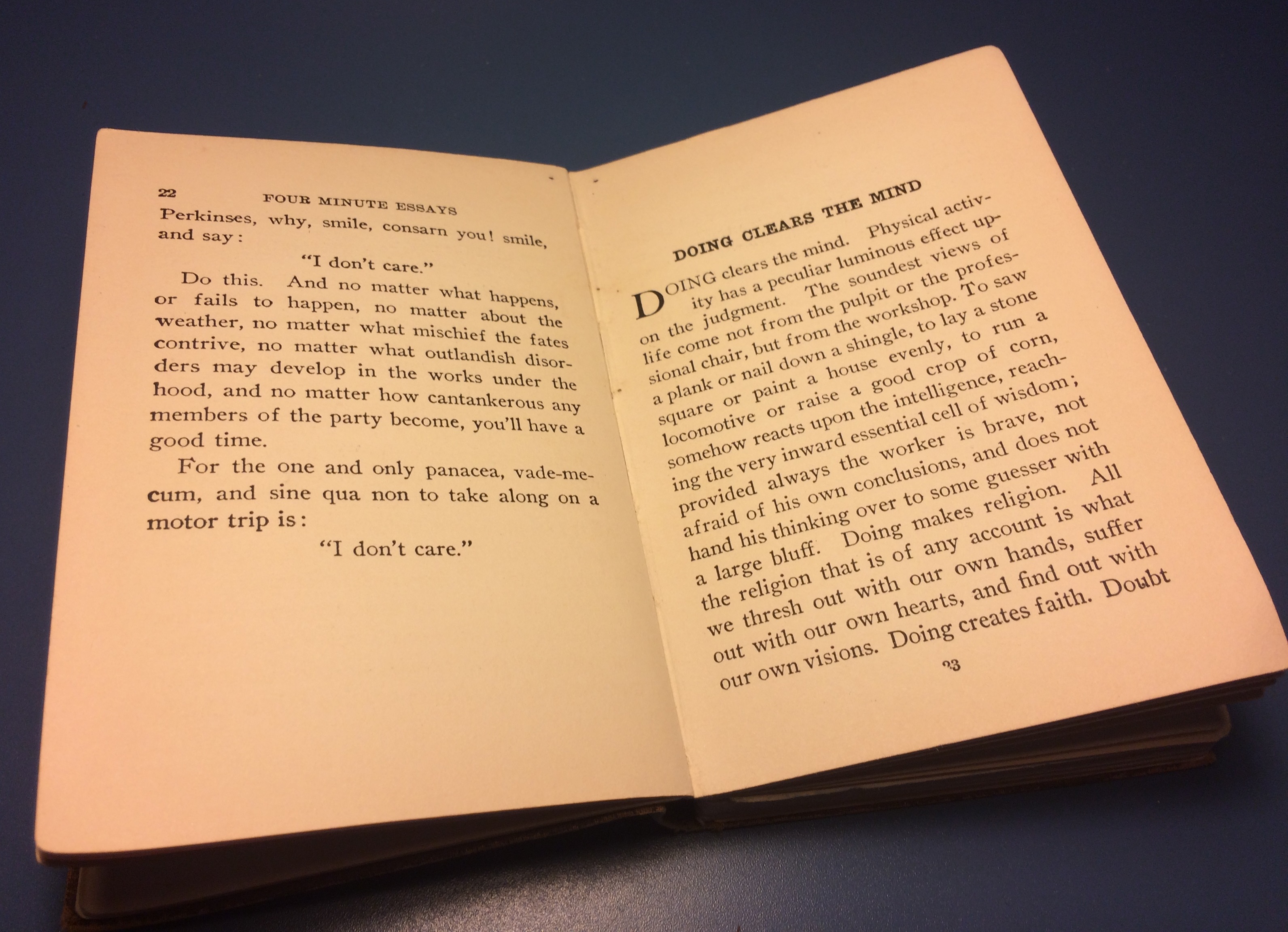Exploring a Long Forgetton Book
By M. B. Herring
Now that I’ve graduated from UMW, I can pretty much read whatever I want. And, after three years of required readings, and many a textbook, this is incredibly freeing. Don’t get me wrong, I loved almost every book that I read during my time as an English and Economics double major. (Well, every book except A Farewell to Arms. I did say almost didn’t I?) It’s just now I have more time to pursue and explore books that may not be a part of the collegiate canon.
So, I could just read Star Wars novels for the rest of my life. And if I, or anyone else, choose to do this, there would be nothing wrong with it.
Yet, while I still love a good Star Wars novel, there is so much more out there to read about than just Quinlan Vos and Grand Admiral Rae Sloane. Such as: realistic fiction novels, histories, YA novels, novels written in verse, poem collections, memoirs, histories, epics, first-hand accounts, articles, essays, research publications, textbooks, classic books, and forgotten books alike. Some of these works can be brilliant, others can be boring, and others still brilliant and boring.
Boring or not, I want to read as many books, and as diverse in their topics, as possible during the course of my life.
Dr. Frank Crane’s 4-Minutes Essays by, you guessed it, Dr. Frank Crane fits into these parameters. Long out of print, I just happened to stumble upon it in UMW’s library. (Yes, even though I graduated, I went back and got an alumni library card.) It was tiny, no more than 4 inches tall, and old, even by university library standards, first published in 1919.
When I first read the title, I was certain that I had heard of Dr. Frank Crane before, via some mention of something that he wrote in Dale Carnegie’s How to Win Friends and Influence People. Like Carnegie, the subject of Dr. Crane’s essays seemed to be self-improvement.
So, I thought, “If Dale Carnegie read him, why not go through Dr. Frank Crane’s 4-Minute Essays and see if there are any kernels of wisdom still within its covers.”
Also, I really wanted to if each essay could be read in 4-minutes or less.
This blog post is the result of that thought. For each essay in the collection, I timed how long it took for me read it and then immediately wrote down a quick summary, or “The Jist”, of the piece along with my thoughts on it.
You can read these thoughts below:
What I Write is my Tombstone
Time: 1 Minute & 3 Seconds
Literal tombs like those of the ancient Roman’s and medieval times, no matter how magnificent will eventually be forgotten. The best tomb is a book.
Drunk on Wisteria
Time: 1 Minute & 8 Seconds
I thought this essay was saying to get a high off life and all the beauty it provides. That is until I googled Wisteria and found out it was a plant. It turns out Dr. Frank Crane just really liked Wisteria.
Mule Power
Time: 2 Minutes & 2 Seconds
It’s really easy to say no. (i.e. Won’t Power) It’s also easy to write that so no is easy.
Agreeableness
Time: 1 Minute & 21 Seconds
If you’re agreeable and happy, then people will like you. Pretty much Dale Carnegie’s How to Win Friends and Influence People but in two and a half pages.
Actually contains the sentence, “Make love to the world”
What to Take on a Motor Trip
Time: 2 Minutes & 1 Second
When Murphy’s law is happening, say “I don’t care” and everything happening to you won’t matter anymore.
Doing Clears the Mind
Time: 1 Minute & 10 Second
Despite what the title suggests, this has nothing to do with sex. Really, the title should be “Creating Clears the Mind,” as the argument is creating something/doing a task illuminates the mind. I whole heartedly agree with this one.
A lot of great lines such as “Those who believe the world is growing better are they that are trying to make it better.”
In fact, this essay is so great that I’m going to stop this blog post right here and reprint “Doing Clears the Mind.” (Don’t worry, its copyright lapsed a long time ago.)

Doing Clears the Mind
By Dr. Frank Crane
Doing clears the mind. Physical activity has a peculiar luminous effect upon the judgement. The soundest views of life come not from the pulpit or the professional chair, but from the workshop. To saw a plank or nail down a shingle, to lay a stone square or paint a house evenly, to run a locomotive or raise a good crop of corn, somehow reacts upon the intelligence, reaching the very inward essential cell of wisdom; provided that the worker is brave, not afraid of his own conclusions, and does not hand his thinking over to some guesser with a large bluff. Doing makes religion. All the religion that is of any account is what we thresh out with our own hands, suffer out with our own hearts, and find out with our own visions. Doing creates faith. Doubt comes from Sundays, and other idle hours. The only people who believe the Ten Commandments are those who do them. Those who believe the world is growing better are they that are trying to make it grow better. Doing brings joy. The sweetest of joys is the joy of accomplishment. Make love and you will feel love. Quit making love and you will doubt love. Be kind, steadily and persistently, and you will believe in kindness. Be unclean and you will soon sneer at anybody’s claim to virtue. Be mean and you will cease to believe there is any goodness in the world.
So, a man has his own destiny, his own creed, his own internal peace, his own nobility in his hands-literally in his hands. For all the worth-while wisdom of goodness you have in your head and heart was soaked up by your hands.
This is the first in a series of posts that will explore Dr. Frank Crane’s 4-Minute Essays Volume 1. In the coming weeks, I will look at the other 50 or so essays that make up the rest of the book. Until then, reread “Doing Clears the Mind.”
